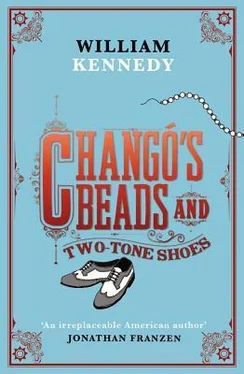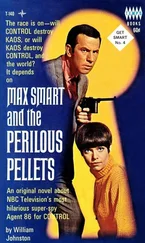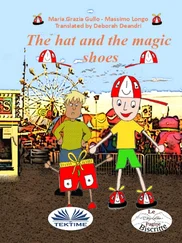“Glad to hear it. Where’s that big son of yours?”
“Over at police headquarters complaining about their methods, that’s what he does. You two had a big day, I hear.”
“We know how to have a good time,” Quinn said. “You know Cody?”
“I remember when he played down in Big Jimmy’s place, long time ago. Lot of talent. I didn’t follow him. I went in other directions. But that was good jazz down there.”
“I was only a kid. But I heard him. Never forgot him.”
“How’s your life at the newspaper?”
“They cut my throat tonight. I had a truly great story — a scam about assassinating the Mayor, which is really just a way of smearing the Brothers, and Roy in particular, and they wouldn’t print it.”
“I don’t know Roy,” Martin said.
“He’ll be here. Pop, are you all right?”
“As well as can be complimented under the circumstances.”
“Good. Vivian, I want to hear about your evening.”
“It was thrilling,” Vivian said. “Your father’s doing fine.”
“I can tell. I thank you for seeing him through a difficult day.”
“It wasn’t difficult. He got a little cut, that’s all. We had a wonderful time. And it’s not over, is it?”
“Not that I can see. Where’s Gloria?” he asked Renata.
“She’s with Matt finding out about bail for Roy.”
“Bail for Roy? They weren’t giving him bail.”
“Somebody called Cody and said it was happening.”
“I asked Jake Hess to represent Roy and Tremont. He must’ve changed their minds.”
“Then you did a good thing,” Renata said. “And Max says he’ll put up Roy’s bail.”
“Ah, Max,” Quinn said, looking at him for the first time, “very generous.”
“I like that kid,” Max said.
“How was your interview with Alex?” Renata asked.
“Predictable, but some things got aired.”
“Did you talk to him about Gloria?”
“No. I didn’t want to listen to him lie about something so important.”
Quinn was bursting with the impulse to stand up and deliver a speech about the night they took away his story on Tremont. His publisher summarily declared history unpublishable, and the Mayor, who had orchestrated that history, affirmed that it had never happened. Tremont the assassin and Zuki the provocateur did not exist. It’s odd how the Pashas reverse themselves, Tremont free, Roy bailed, Renata released from her torture cell (with divine intervention).
Quinn just listened as Renata updated him on the situation with Max: now waiting for the okay to enter Cuba, and when he gets it he’ll leave for Canada, Gander. Complicated, but it’s being arranged. The amazing Renata, who never lost her taste or her talent for intrigue.
Quinn leaned toward Max and whispered, “Alfie may be in Cuba.”
“They let him in?” Max asked.
“That’s the hot rumor in Miami. What does that do to your getting in?”
“I’ll have to ask Renata’s babalawo. ”
When Robles ended Renata’s torture he had asked her what she wanted. I want my mother, she said. If they let my mother come to the Buro they won’t kill me because she is a woman of means, of status, of influence. Robles had said influence doesn’t matter here, but it matters. Robles had the guards wash the blood off her body, her face, her ears, her hair. He gave her a policeman’s shirt out of the closet, small, it almost fit her, but nobody was her size on the police force. They put ice on her face where she had been cut and bruised to reduce the swelling, brushed her hair, then gave her a room with a cot to lie on until the morning. She feared they would kill her during the night. A woman came in and examined her and put drops in her ears and gave her water and pills and said, take three for your pain. Renata could not hear her voice. She accepted the pills but kept them in her hand. Pills might be poison, Diego had told her. I have no pain, she told the woman.
Robles was doing what Changó had told him to do. He ordered Renata’s room locked and he kept the key and stayed all night in an office next to the torture room. At sunrise they brought her breakfast and more ice and at nine her mother was allowed to see her in the office and take her home on her arm, with Robles offering deferential bows to Celia who thanked Colonel Robles for his kindness and walked Renata to the car.
Diego had warned her that the police are liars, so do not trust anything they say or do. In the car her mother was saying her father had booked her on a flight to New York, she would stay with her cousin and have all the money she needs. She would be off the island tomorrow. But Renata had other plans. She told her mother to use her connections to get her into the Haitian embassy where she would seek asylum, also the Brazilian and Ecuadoran embassies, for her father knew the Brazilian military people and the Ecuadoran ambassador was in love with her; so she would have three safe places to go. Her mother insisted New York was safest and Renata said yes, but I will never get there, do what I ask, Mama, or they will kill me, not all the police are as afraid of me as Robles is. They will be coming for me very soon.
When they arrived home her mother drew a bath for her and examined her wounds and put Furacin salve on all of them, and wept when she saw what that devil did to her ears. He made her a deaf person. She said she would call a doctor but Renata insisted they call everybody they knew with clout to get her into one of the embassies. She went up to her room and packed five kinds of medicine, her passport, two blouses, two skirts, her makeup and sundries in an overnight case, tiptoed down the back stairs and heard her father talking on the phone about the Brazilian embassy.
She went out the French doors and through the garden, past the bougainvillea to the bus stop on Fifth Avenue, trying not to look like herself, and waited six months for the bus. Then she climbed its two steps feeling great pain in her ribs, god knows how many are broken, and why hadn’t they pained her this way going up the stairs to her bedroom?
She shuffled toward the rear of the bus and put on a mantilla to hide her face and hair, and sat facing away from the window. She rode to Twenty-second Street and walked two blocks to the Haitian embassy, a two-story building at Twenty-second and Seventh Avenue where, she had heard two weeks ago, six rebels from Matanzas had found asylum. But now the corner was full of police cars and policemen were surrounding the embassy, something going on and she would not stay to find out what. She walked back to Fifth Avenue, every step a dagger in both her sides. She waited for a bus that would take her to the Brazilian embassy, which occupied suites in a nine-story office building on the corner of Infanta and Twenty-third at the Malecón. She told the guard she was the ambassador’s niece but at the entrance to the embassy’s suite she felt that she could not take another step. The door opened to her and she stared at a young man who looked like a diplomat in training. He welcomed her and gestured for her to enter. She tried to make the step across the threshhold but she could not move. She dropped her bag and swooned into the young man’s arms.
Had she gone to the Haitian embassy forty minutes earlier she would have met two of her friends who had taken part in the Palace attack, Carbó and Prieto, and Javier from the 26th, one of the killers of Quesada at the Montmartre. Two safe houses where the three might have gone had turned out to be under surveillance, pinpointed by captured rebels who had been tortured into revelation, and so the three went to where the six Matanzas revolutionaries had found a haven. The three had four pistols among them and refused to surrender any until they had received safe conduct. They sat in a first-floor room while the Haitian diplomats considered their future. Within less than an hour their arrival had reached the ears of the chief of the Cuban National Police, Rafael Salas Cañizares, who swiftly assembled a task force and alerted the news photographers who documented his front-page arrests, that he had found the gangsters who might have killed Quesada.
Читать дальше












